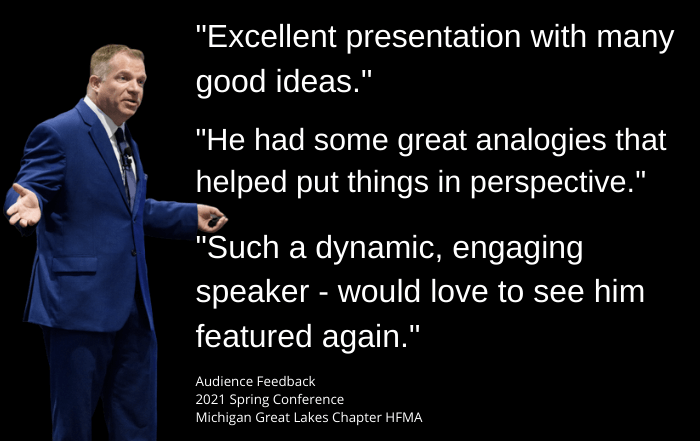 The ability to focus better at work, could help you unlock a new level of performance. My goal is for you not to work more but rather use a higher level of focus to ensure you leave your job at a reasonable hour.
The ability to focus better at work, could help you unlock a new level of performance. My goal is for you not to work more but rather use a higher level of focus to ensure you leave your job at a reasonable hour.
If you feel like your workday is full of unending distractions, you’re probably right. A survey from Mopria Alliance found that a distraction can happen every 31 minutes. What if we could reduce their impact?
The ability to be present at work represents an important career skill. I don’t just mean being physically in a place. Rather, you’re focused on your most important tasks, during important moments, and not overwhelmed by all the things you need to do.
Consider these tips to help you focus better at work:
Check In With Yourself
A good way to slow a racing mind, is to ask yourself a simple question. One that works well for me is, “Where am I?”
This isn’t a trick question. You might respond by saying, “I’m sitting at my desk, in my office,” or “I’m in the waiting room of a prospective client’s office.”
Besides the location can you add some sort of sensory information? This could see you say, “I’m sitting at my desk at work and I smell coffee.” Others may choose to focus on the room temperature.
The goal is to slow and clear your mind.
Think About Your Most Important Thing
Now that you’ve cleared your mind, what is your most important task you should be focused on in that moment? This is one thing, not ten.
And example of this could be to review an agenda and notes for an upcoming meeting. That’s where you direct your focus. You don’t start it, stop for a while, and then try to pick up where you left off.
Some like to put a time limit on these tasks, so they become more manageable. For example, you make a deal with yourself to spend ten minutes preparing for your upcoming meeting.
You’ll start to learn how long it takes you to do things, when you’re focused 100% on an activity. Ultimately, this will help you better schedule your day.
Acknowledge Distractions
Does it seem like, as soon as you commit to doing something, something else comes along that distracts you? Consider whether the distraction needs immediate attention or if it can wait. Sometimes we use distractions, as a delay tactic, for important work we need to do but don’t love.
I’m a fan of creating barriers, during those moments when you really need to concentrate for a few minutes. Examples of workplace barriers include doing things like closing a door, turning off phone and email notifications, or moving to a quieter space.
Leave Space in Your Day
If you want to focus better at work, then you may need to free up some time in your schedule. It can be just five minutes, multiple times during your day.
These breaks give you a moment to catch your breath and refocus, during busy days.
Some will set an alarm, during the day, as a reminder to take these mini-breaks. Some may choose to do them at the beginning of the day, after lunch, or just as they are staring their final hour at work.
Have Time to Unwind
After a busy day, it’s good to have a ritual that allows you to celebrate what you’ve accomplished at work and shifts you into your out of office life.
For some, this may involve taking a walk or doing some sort of exercise class. If I need to slow down my thinking and release some stress, I may listen to a guided meditation session on YouTube. Some may prefer to listen to their favorite music on the way home from work.
Whatever you chose, try to make the activity an ongoing ritual.






